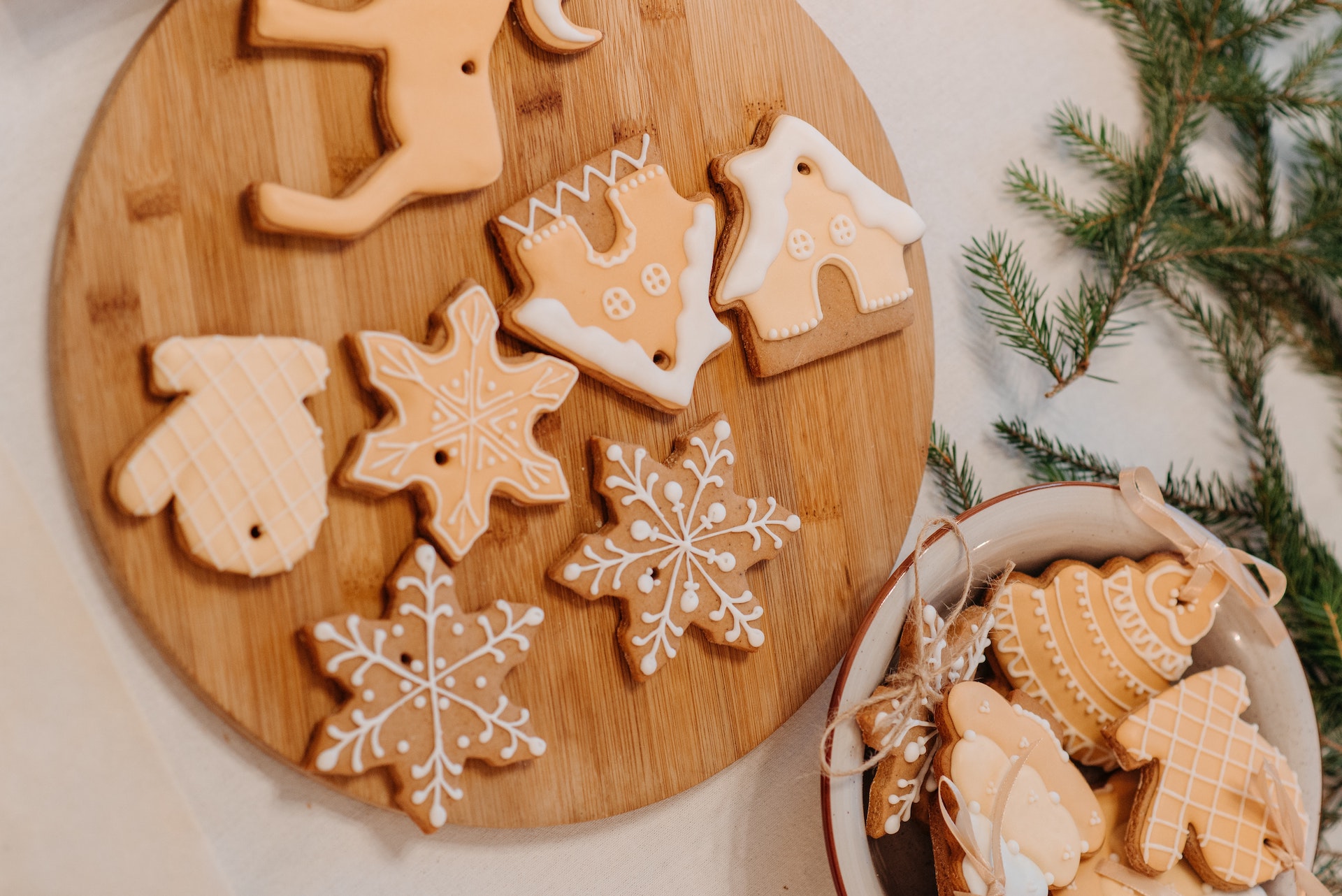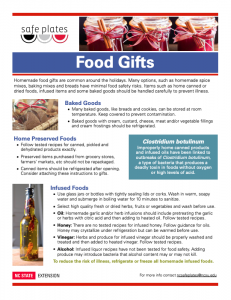
Our colleagues at the NC Safe Plates team have prepared a Food Gifts Fact Sheet with tips to gift food safely this holiday season!

Homemade food gifts are common around the holidays. Many options, such as homemade spice
mixes, baking mixes and breads have minimal food safety risks. Items such as home canned or
dried foods, infused items and some baked goods should be handled carefully to prevent illness.
Baked Goods
- Many baked goods, like breads and cookies, can be stored at room temperature. Keep covered to prevent contamination.
- Baked goods with cream, custard, cheese, meat and/or vegetable fillings and cream frostings should be refrigerated.
Home Preserved Foods
- Follow tested recipes for canned, pickled and dehydrated products exactly.
- Preserved items purchased from grocery stores, farmers’ markets, etc should not be repackaged.
- Canned items should be refrigerated after opening. Consider attaching these instructions to gifts.
Infused Foods
- Use glass jars or bottles with tightly sealing lids or corks. Wash in warm, soapy water and submerge in boiling water for 10 minutes to sanitize.
- Select high quality fresh or dried herbs, fruits or vegetables and wash before use.
- Oil: Homemade garlic and/or herb infusions should include pretreating the garlic or herbs with citric acid and then adding to heated oil. Follow tested recipes.
- Honey: There are no tested recipes for infused honey. Follow the guidance for oils. Honey may crystallize under refrigeration but can be warmed before use.
- Vinegar: Herbs and produce for infused vinegar should be properly washed and treated and then added to heated vinegar. Follow tested recipes.
- Alcohol: Infused liquor recipes have not been tested for food safety. Adding produce may introduce bacteria that alcohol content may or may not kill.
- To reduce the risk of illness, refrigerate or freeze all homemade infused foods.
For more information contact ncsafeplates@ncsu.edu
If you have concerns about preparing food gifts see this information from the CDC. Currently, there is no evidence to support transmission of COVID-19 associated with food. In general, because of poor survivability of these coronaviruses on surfaces, there is likely very low risk of spread from food products or packaging.
Don’t miss another great blog: Subscribe Now
